Veterinary & Biosecurity
Researchers utilize ICT to monitor & address Antimicrobial Use (AMU) & Antimicrobial Resistance (AMR) in Animals
Published
3 years agoon
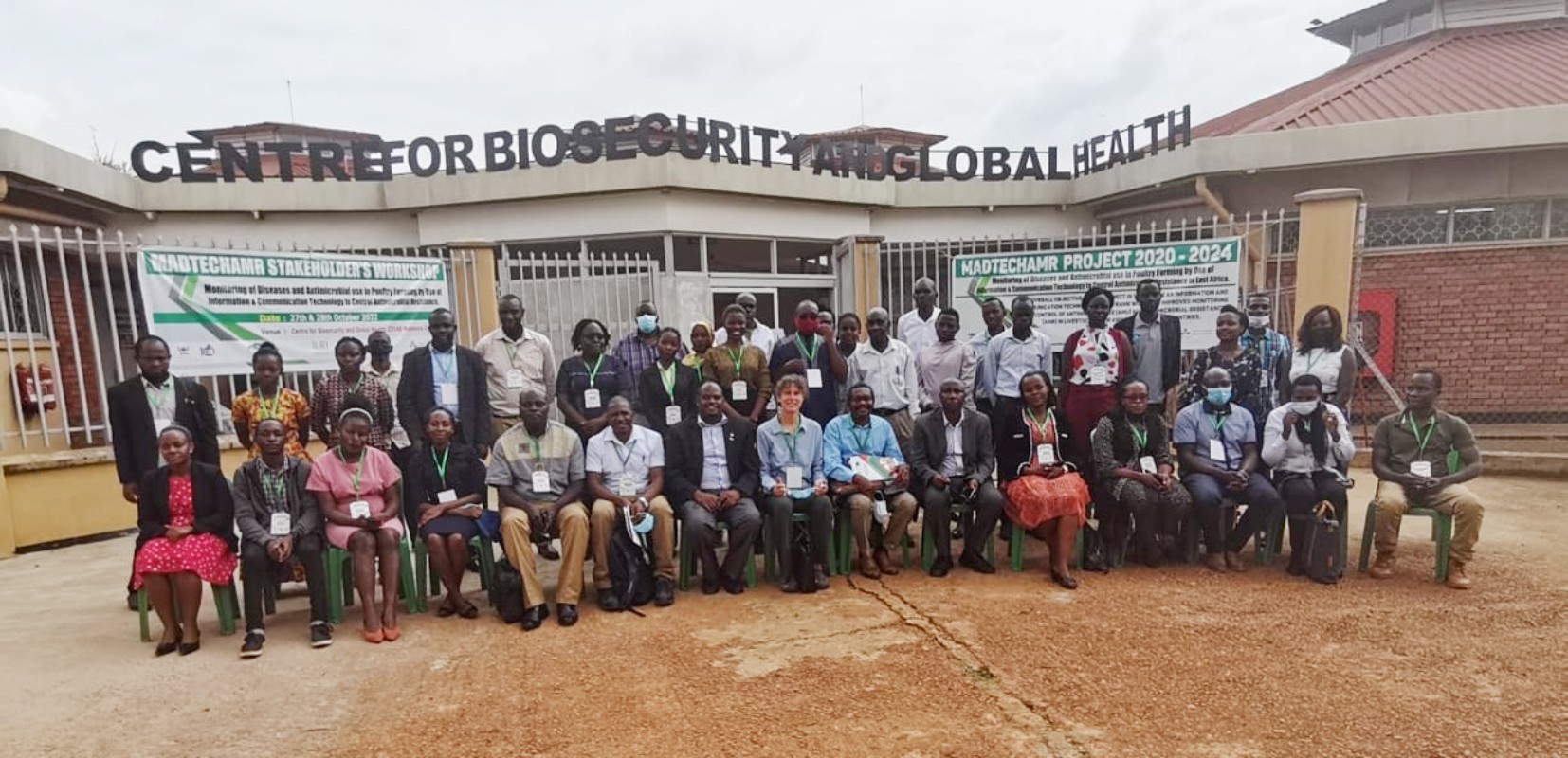
Joseph Odoi & Harriet Musinguzi
A consortium of researchers from the College of Veterinary Medicine, Animal Resources and Biosecurity (CoVAB)-Makerere University, International Livestock Research Institute (ILRI), Kenya, University of Nairobi and Swedish University of Agriculture Sciences (SLU) have developed an Information, Communication and Technology (ICT) system to address Anti-microbial resistance and monitor antibiotic usage in Livestock starting with poultry industry. This innovation comes at a time when AMR is emerging as a global health concern
Antimicrobial Resistance occurs when some of the germs (bacteria, virus, or fungus) that cause infections resist the effects of the medicines used to treat them. This may lead to ‘treatment failure’, or the inability to treat the cause of the infection.
The main drivers of antimicrobial resistance include the misuse and overuse of antimicrobials; lack of access to clean water, sanitation, and hygiene (WASH) for both humans and animals; poor infection and disease prevention and control in health-care facilities and farms; poor access to quality, affordable medicines, vaccines and diagnostics; lack of awareness and knowledge; and lack of enforcement of legislation.
To counter this trend,a two-day Project workshop titled Management of animal diseases and antimicrobial use by information and communication technology to control antimicrobial resistance in East Africa (MAD-tech AMR project 2022-2024 ) was convened at CoVAB) by the project Co-investigator Associate Professor Lawrence Mugisha aimed at sharing progress made by the research team.
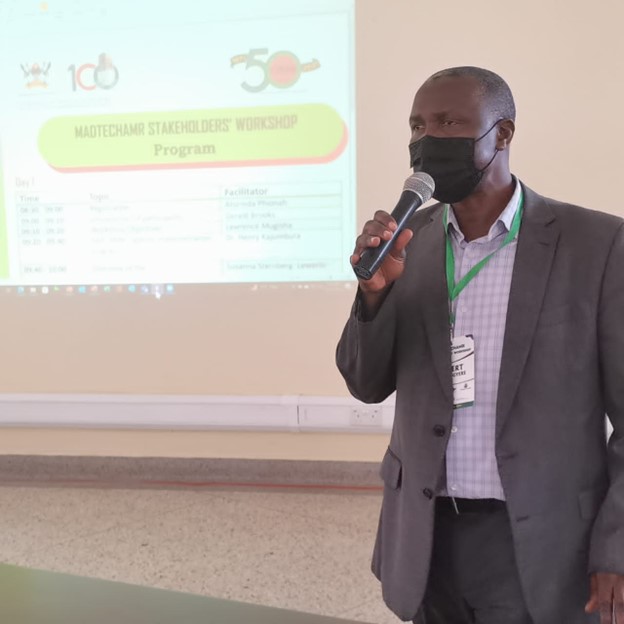
Prof. Robert Tweyongyere, the Dean School of Veterinary Medicine and Animal resources, College of Veterinary Medicine, Animal resources and Biosecurity (CoVAB) giving his remarks.
The workshop was opened by the College Principal represented by Prof. Robert Tweyongyere, the Dean School of Veterinary Medicine and Animal resources, College of Veterinary Medicine, Animal resources and Biosecurity (CoVAB),who in a special way welcomed the participants to Makerere University.
He noted that with support from Swedish University of Agricultural Sciences effective 12th June 2020, Makerere University in collaboration with Sweden, the International Livestock Research Institute (ILRI) Kenya, and University of Nairobi, the researchers embarked on implementing the MAD-tech-AMR project that aimed at providing an Information and Communication Technology (ICT) framework for improved monitoring and control of antimicrobial use (AMU) and antimicrobial resistance (AMR) in livestock in low and middle-income countries.
Prof. Robert Tweyongyere, who represented the Principal CoVAB, Prof. Frank Nobert Mwiine at the official opening of the two day engagement further revealed that antimicrobial resistance is now a leading global health and development threat thus needs urgent attention.
“Tools to monitor antimicrobial Usage are very important and that is why the MAD-tech-AMR project is necessary in this day”. One of the biggest challenge we have is data collection and storage around AMR which this project is solving . Additionally , We are yet to see the toll of microbial resistance. This research will bring out some fundamental issues given that microbial resistance is still a concept, yet to be appreciated’ he noted.
He equally thanked the project team led by Prof. Lawrence Mugisha for undertaking the project that affects every one’s livelihood.
Prof. Lawrence Mugisha, the Principal Investigator at Makerere University, in a summary update of MAD-tech-AMR project said if left unchecked by 2050, AMR may contribute to up to 10 million deaths per year with low- and middle-income countries (LMICs) like Africa being victims.
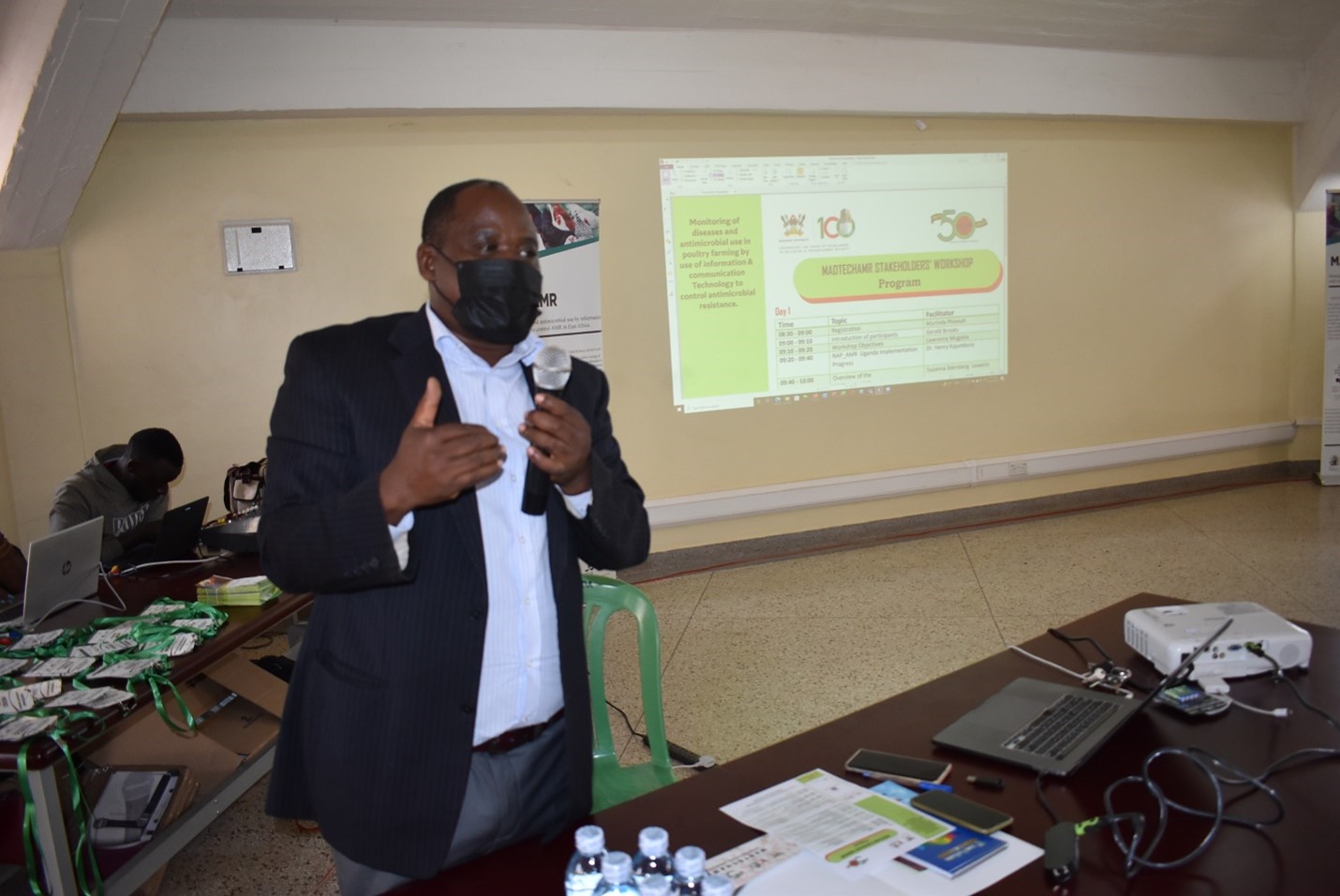
Prof. Lawrence Mugisha makes his presentation at the workshop
In Context to Uganda, Prof. Lawrence Mugisha noted that with 80% of Ugandans depending on agriculture, the cost of AMR to the national economy and its health systems is significant and thus needs urgent attention. He emphasized the importance of a multi-sectoral approach if sustainable development goals are to be achieved. He said that AMR has a great Impact on SDG1 (no poverty), SDG2 (zero hunger), SGD3 (good health and wellbeing), SDG6 (clean water and sanitation), SDG 8 (Decent work and economic growth), and SGD12 (responsible consumption and production). Prof. Mugisha also shared the way forward to address the AMR challenges and these were;
- Raising public awareness about AMR
- Maintenance of sanitation and hygiene
- Surveillance
- Investing in human capital for innovative vaccines like herbal for the replacement of Antibiotic use.
As part of the study, researchers addressed the following key findings from the study;
- Antibiotics were the most used drug by livestock farmers followed by dewormers. More so respiratory related infections was the most reported case followed by digestive problems like diarrhea. The most used antibiotic by farmers was Oxytetracycline Hydrochloride and procaine.
- 2% of the farmers were female and 21.4% had attained a degree. Their mean age was 37.5 years. Most of the farmers specialized in Economics and business-related studies followed by those with no specific field of study. Majority of the farmers were funded by project owners (78.95%) and household members (16.14%). There were mainly managed by hired labor (44.56%) and household members (33.33%).
- Worms and Typhoid were reported to be the biggest threat in regards to the health status of birds.
- In terms of Management Practices, regular cleaning and disinfection were highly practiced by farmers.
- Most farmers bought drugs from VET Shops and also consulted VETs
- In regards to IT use, 97% of the farmers, and 100% of drug sellers and feed dealers have mobile phones; 69% of farmers had smart phones and were MTN and Airtel subscribers, and most too used the internet daily.
- 70% of the veterinary doctors wished to call farmers
- WhatsApp platforms and Facebook were the most commonly used online Channels

Prof. Lawrence Mugisha further emphasized that using the current ICT system developed by MAD-Tech-AMR team could favour the use of mobile phones in monitoring AMU and AMR. ‘It would also be easy to work with common telecommunication companies (MTN and Airtel) to whom farmers had already subscribed. Real-time communication with veterinary doctors, feed dealers, drug sellers, and farmers themselves would be made easy. Since 80% of the farmers do farm-related activities, so deploying an IT system is easy in monitoring AMR use, he explained.
As part of monitoring AMU and AMR, Wangoru Kihara from MAD-tech-AMR Project, Kenya shared a brief architecture of the upcoming IT application named: “Animal Disease Information System (ADIS) application developed by the Project which can link farmers to veterinary drug/pharmacy owners and veterinarians to get help in real-time.
In this Platform;
- Different users like farmers(farmers, agrovets, vets) can download the application, register and log in.
- After logging in, they can report a disease or browse disease symptoms or share drug usage details on their farms.
- Access is through smartphones, computers, laptops.
- Real-time processing of data is possible for users to visualize: agrovets- drugs sold, farms – disease history
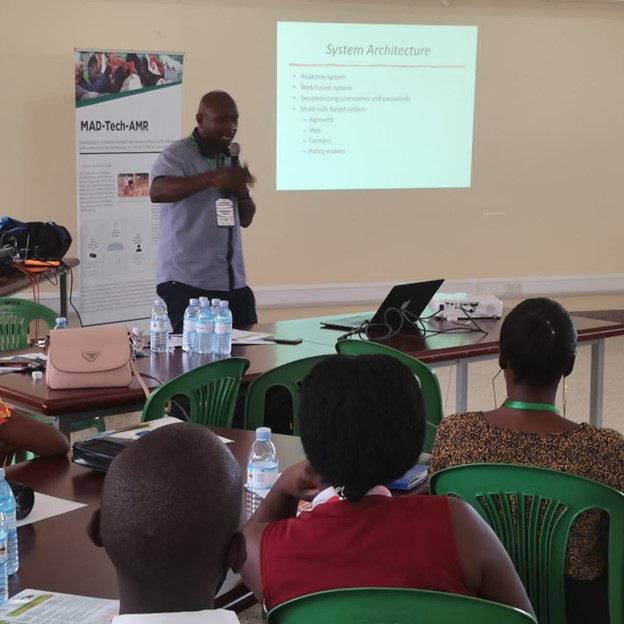
Mr. Wangoru Kihara explains the ADIS system developed by MADTECH project
In her presentation centered on the MAD-tech-AMR project aims and objectives, Professor Susanna Sternberg Lewerin from Swedish University of Agricultural Sciences, Department of Biomedical Sciences & Veterinary Public Health revealed that although Antibiotics are powerful medical tools that allow curing of serious infectious diseases in people and animals, it also has the ability to trigger bacteria to develop resistance to drugs thus the need to consult with professional practitioners before use.
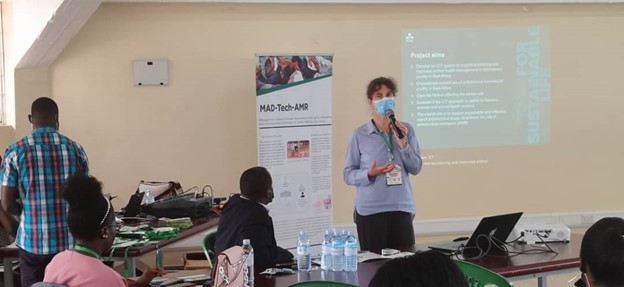
Dr. Sussanna Sternberg making a presentation at the event.
In context to bacteria developing resistance to drugs, Dr. Henry Kajumbula from the Department of Microbiology, Makerere University College of Health Sciences noted that in 2015, a situation analysis was conducted by the Uganda National Academic Science (UNAS) and it was found that some of the most reliable antibiotics with a high safety margin and great effectiveness were found to meet a high resistance of about 40%. “The prevailing conditions of hygiene and sanitation in our health care system also drive resistance to antibiotics. Because of this situation, micro organisms become resistant to the most potent antibiotics. This situation is being recognised in the human health system because of the increase in bacterial infections which are failing to be treated” explained Dr. Kajumbula
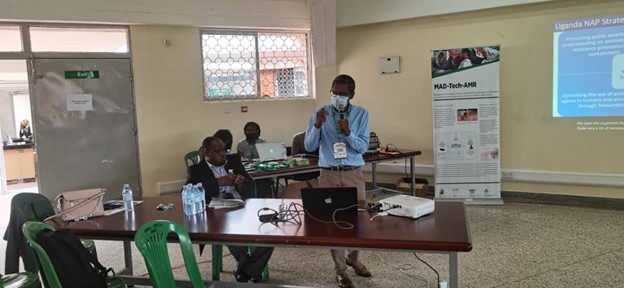
Dr. Kajumbula making a presentation at the event.
Moving forward, the MAD-TECH-AMR project team called upon farmers, Agrovets and policy makers to make use of the Animal Disease Information System that will be rolled out soon .
During this event, participants namely farmers, agrovets, policy makers among others were trained how to use Animal Disease Information System (ADIS) specifically how to log in, report a disease or share drug usage details by the ICT expert in the workshop. Some of the key questions raised by participants include if the ADIS system will be translated into local languages and sustainability among others.
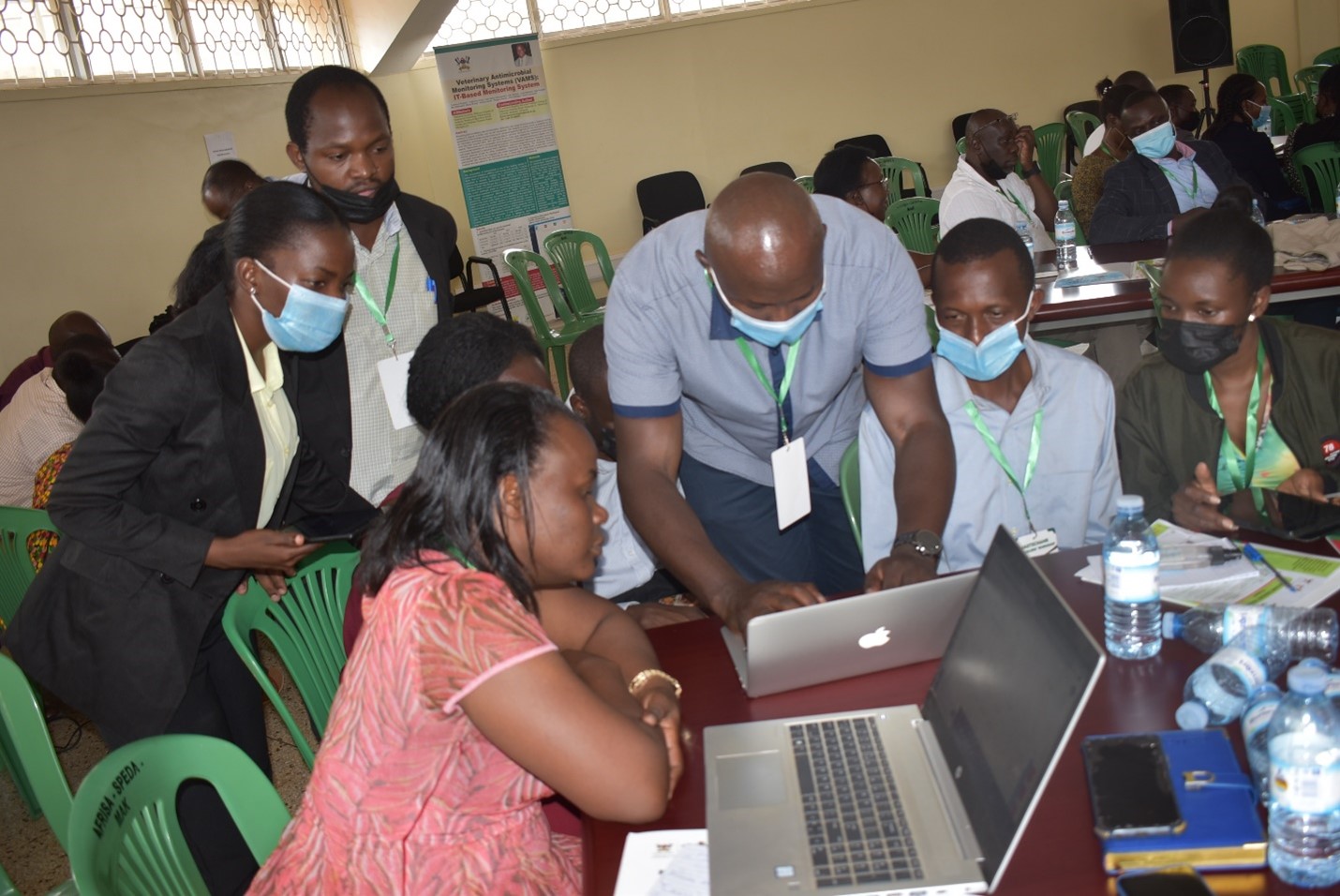
The ICT Expert Kihara demonstrates to participants how to log in and use the ADIS system
The MAD-Tech-AMR stakeholder engagement kicked off on Thursday 27th October 2022 at the Biosecurity centre in the College of Veterinary medicine, Animal Resources and Biosecurity (CoVAB) and run until Friday 28th October 2022.
More about the Project
MAD-tech-AMR is a partnership between Swedish University of Agricultural Sciences, Sweden, International Livestock Research Institute, Kenya, Makerere University, Uganda, and University of Nairobi, Kenya
This project is designed to provide proof of concept, applying a framework for surveillance of AMU, diseases that trigger AMU, and perceived problems with AMR, in East African poultry production systems. Information and Communication Technology (ICT) will be coupled with veterinary epidemiology and social science methods.
The ICT framework developed by the project will be pilot-tested in selected poultry production systems in Kenya and Uganda. The framework may be expanded in the future to allow the inclusion of diagnostic tools, but the initial focus is on clinical diagnosis based on tele-consultation and evidence-based therapeutic strategies.
Project Partners
- Susanna Sternberg Lewerin, Swedish University of Agricultural Sciences, Sweden (Coordinator)
- Florence Mutua, International Livestock Research Institute, Kenya
- Lawrence Mugisha, Makerere University, Uganda
- Joshua Onono, University of Nairobi, Kenya
You may like
-
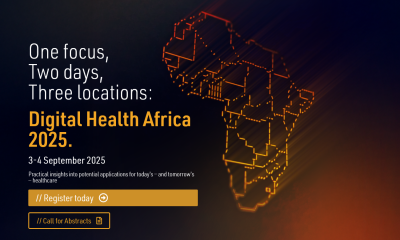

Call for Abstracts: Digital Health Africa 2025
-
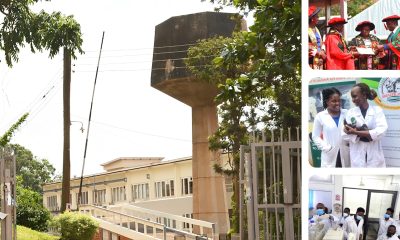

CoVAB Annual Report 2024
-


CoCIS CIPSD Online Short Courses Jul-Nov 2025
-
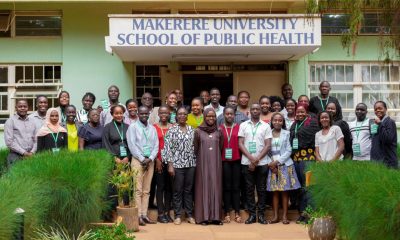

MakSPH, DJC Launch Short Course on Health Communication
-
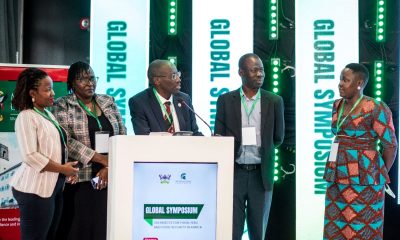

Mak and MSU Host Landmark Symposium on Insects for Food, Feed, and Food Security in Africa
-
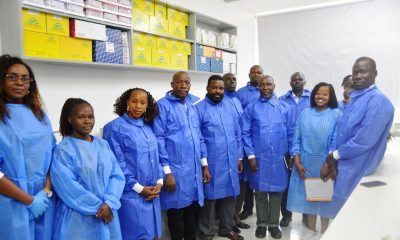

Makerere Receives Scientific Equipment worth over UGX 1.4 Billion
Veterinary & Biosecurity
CoVAB Annual Report 2024
Published
3 days agoon
June 30, 2025By
Mak Editor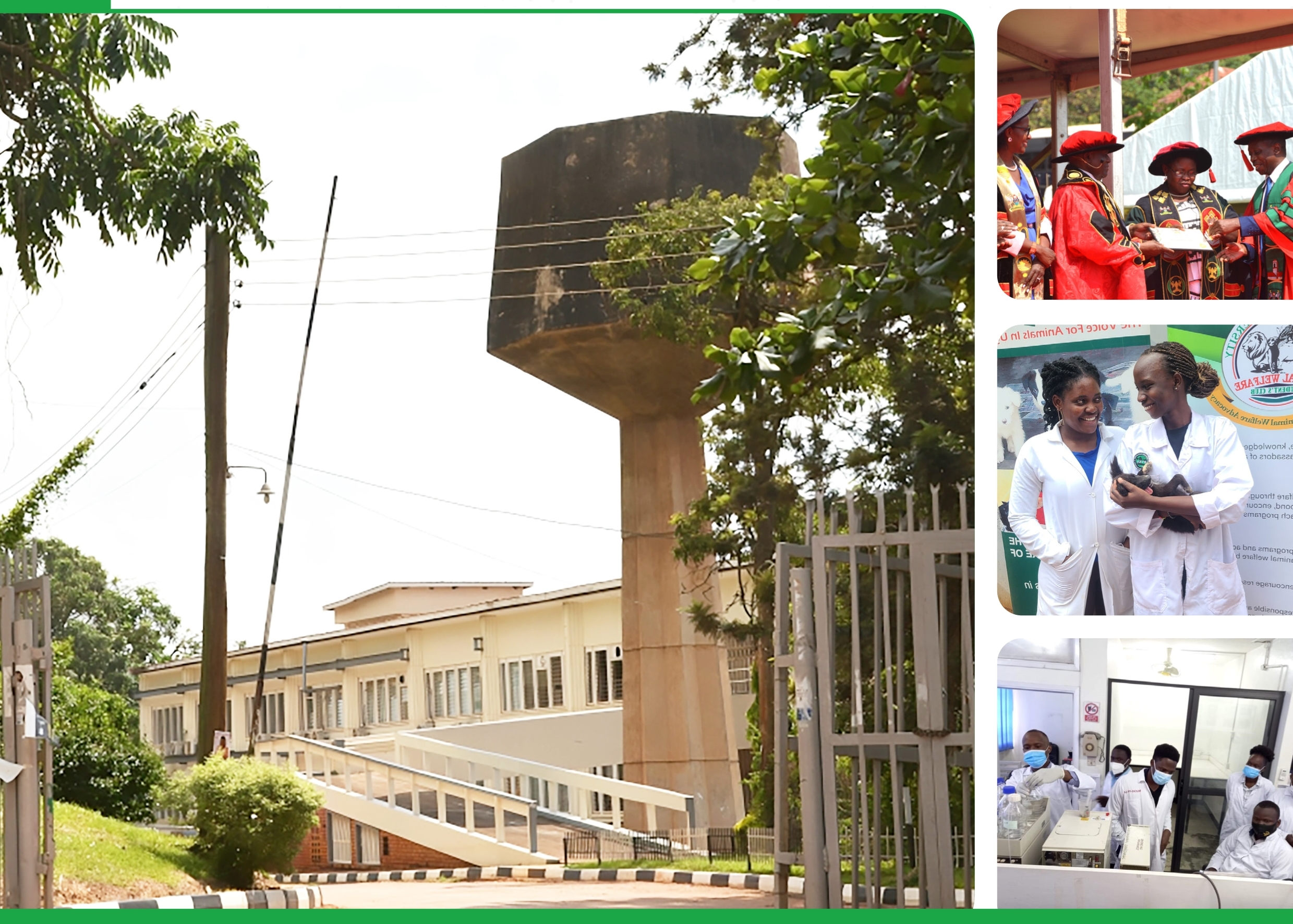
It is my pleasure to share the Annual Report for the year 2024, highlighting the various milestones realized in the College of Veterinary Medicine, Animal Resources, and Biosecurity. First and foremost, I wish to congratulate all of us for the dedication and effort rendered in the running of the college during the period. This collective commitment enabled us to excel in several areas, in line with the mandate of the college and Makerere University at large.
Our mandate teaching and learning, research and innovation, as well as knowledge transfer and partnerships, has been diligently pursued through the concerted efforts of all stakeholders, students, teaching staff, administrative teams, and valued partners. The college takes pride in the contributions made by our partners, who continue to support us in fulfilling this mandate. We particularly appreciate Norbrook (U) Ltd, which has consistently recognized the best-performing veterinary students with cash prizes annually since 2021.
Among the key achievements in 2024 was the expansion of research facilities at CoVAB. The college successfully established new, state-of-the-art laboratories, including an advanced Biomarker Discovery and Translation Research Laboratory, which continues to lead in developing point-of-care diagnostic kits for infectious and noncommunicable diseases, including cancer. The Biomarker Discovery and Translation Research Laboratory at CoVAB represents a significant leap in biomedical research and innovation. This state-of-the-art facility is dedicated to identifying and translating biomarkers into point-of-care diagnostic kits for both infectious and non-communicable diseases, including cancer. In this regard, CoVAB is poised to make tremendous contributions and impacts in advanced diagnostic development through rapid, accessible, and cost-effective diagnostic tools that can be used in both human and veterinary medicine, thereby contributing to improving early disease detection and treatment outcomes.
In the area of interdisciplinary research, the laboratory fosters collaboration among veterinary scientists, medical researchers, and biotechnologists, ensuring a holistic approach to disease management. Given the increasing prevalence of zoonotic diseases, the lab plays a crucial role in bridging veterinary and human health research, contributing to global health security and supporting One Health initiatives. Other achievements at the college are visible in groundbreaking research projects, with several initiatives launched, including studies on zoonotic disease prevention, vaccine development, and drug action mechanisms.
In the area of community outreach, the college expanded its livestock health programs, providing veterinary services to rural communities and enhancing disease surveillance. This is coupled with the increased international Collaborations where CoVAB strengthened partnerships with global institutions, securing funding for One Health initiatives aimed at tackling emerging health challenges.
These advancements and more not mentioned strategically position CoVAB and Makerere University as key players in addressing major animal and human health challenges, particularly zoonotic diseases, which constitute a significant proportion of emerging and reemerging infectious diseases.
The achievements highlighted in this report would not have been possible without the unwavering support, dedication, and collaboration of various stakeholders. We extend our heartfelt gratitude to our students, who are the backbone of our academic community, and whose commitment to learning, research, and innovation continues to propel CoVAB to greater heights. The dedication of our lecturers, researchers, and administrators has been instrumental in driving the college’s mandate forward. Your passion for education, mentorship, and scientific discovery is deeply appreciated. The partners and collaborators, including institutions, organizations, and industry stakeholders such as Norbrook (U) Ltd, have supported our initiatives and strengthened our capacity through funding, knowledge exchange, and collaborative projects. Your contributions are invaluable.
Together, these contributions have made 2024 a truly remarkable year for CoVAB. As we move forward, we remain committed to strengthening these partnerships and building on our shared successes. Thank you for being part of our journey. As we move forward, we anticipate an even more successful period ahead, and together, we shall achieve all that we set out to do.
Prof. Frank Norbert Mwiine
PRINCIPAL
Research
Mak and MSU Host Landmark Symposium on Insects for Food, Feed, and Food Security in Africa
Published
3 weeks agoon
June 10, 2025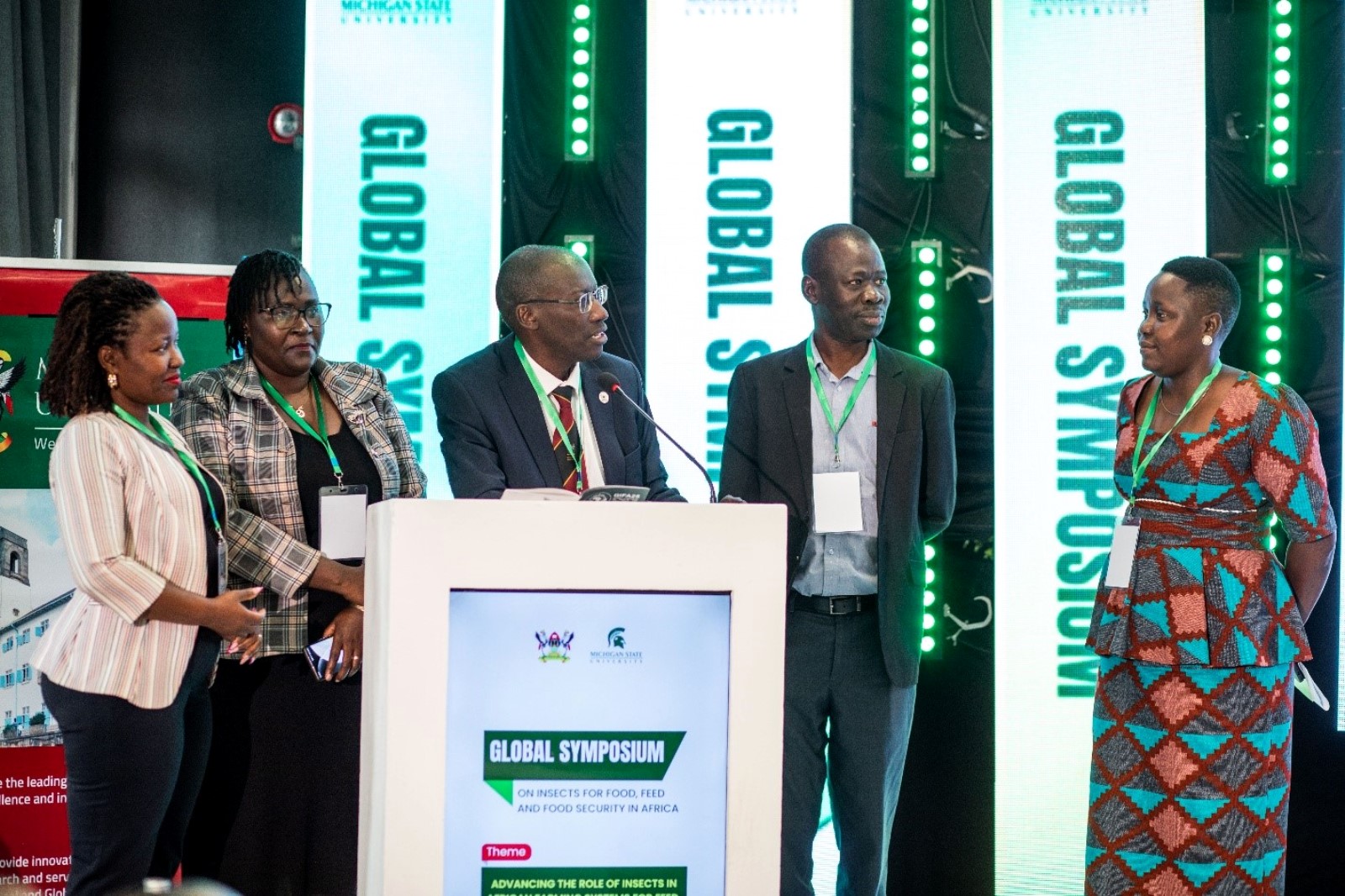
A groundbreaking symposium exploring the role of insects in African farming systems concluded on June 6th, 2025, at Onomo Hotel in Kampala. Convened by Makerere University’s College of Veterinary Medicine, Animal Resources and Biosecurity (CoVAB) in collaboration with Michigan State University (MSU), the event drew participants from over ten countries, including researchers, development experts, regulators, and practitioners.
Under the theme “Advancing the Role of Insects in African Farming Systems for Feed, Food, and Food Security,” the two-day gathering aimed to share knowledge and experiences on integrating insects into food and feed systems to address food security challenges across the continent. The discussions revolved around four key sub-themes namely; Insects as animal feed to promote sustainable livestock production and livelihoods; Insects for human food and food security, including indigenous insect-based diets; Insects for improved soil health and crop production and Commercialization of insect farming, with a focus on regulation and standardization.
The symposium commenced with opening remarks delivered on behalf of Makerere University’s Vice Chancellor, Prof. Barnabas Nawangwe, by his representative, Prof. Frank Norbert Mwiine, Principal of CoVAB. He welcomed participants and commended Dr. Deborah Amulen, Lecturer at CoVAB and chief convener, for organizing a well thought out event. He emphasized that the symposium would not only raise awareness of the role of insects in Uganda’s and Africa’s socio-economic development but also help place insects on the agenda for broader discussions and integration into food security strategies. He said the event served as a platform for knowledge exchange, highlighting the untapped potential of insect farming in transforming food security, sustainable agriculture, and economic growth.
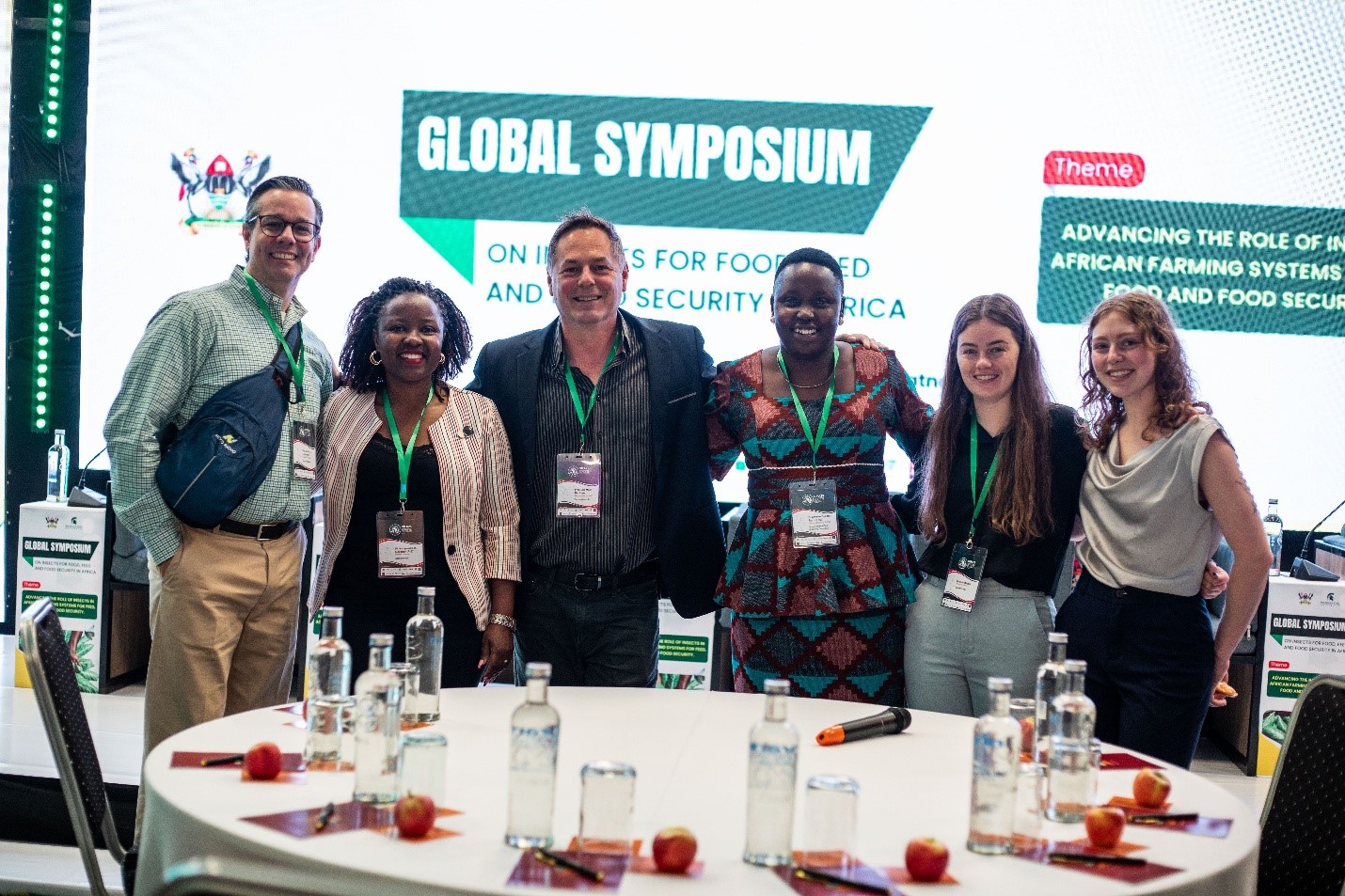
Key facilitators at the symposium were esteemed experts from leading institutions worldwide, who shared their insights on insect-based food systems and sustainable agriculture. Among the distinguished speakers were Prof. Jeffrey K. Tomberlin from Texas A&M University, Prof. Eric M. Benbow from Michigan State University, Prof. Florence Dunkel from Montana State University, Dr. Denise Beesigamukama, a Postdoctoral Fellow, ICIPE Kenya and Dr. Deborah Amulen the host from Makerere University. These are exemplified in their contribution towards academic research and leadership, policy and industry impact and more importantly their expertise in insect science.
During the deliberations, the experts emphasized that insects offer a viable, sustainable, and nutrient-rich solution to Africa’s growing food demands. The event underscored ongoing research and commercialization efforts aimed at mainstreaming insect farming into the agricultural sector. As global interest in alternative protein sources continues to rise, the symposium marked a significant step toward harnessing the potential of insects to enhance food security in Africa.
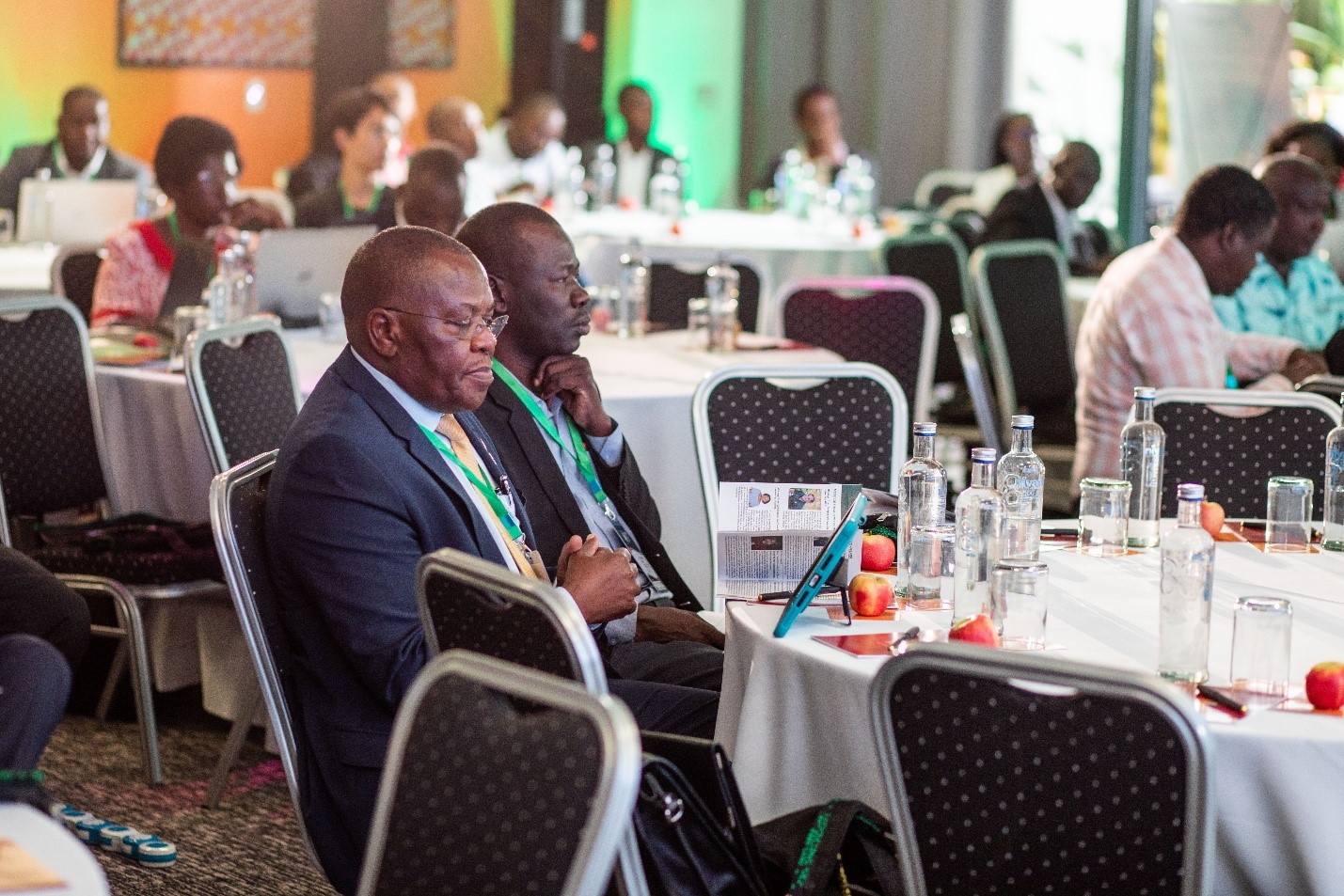
Experts underscored that Africa is home to over 470 recognized edible insect species, providing a rich source of proteins, fats, and essential micronutrients. Insects have historically been a staple in diets across Uganda, Southern Africa, and other regions, serving as a vital food source in times of drought, conflict, and food scarcity. One of the most discussed innovations at the event was the large-scale farming of Black Soldier Fly, which is being utilized to produce not only the larvae but also frass, a high-protein animal feed and organic fertilizer to enhance soil health and boost agricultural yields.
Several scholars presented their research in the area of Insects, where together with the farmers, industry representatives, policy makers and practitioners contributed valuable perspectives on advancing the role of insects in food security, animal feed, and ecological sustainability in Africa. Their discussions underscored the importance of research, policy, and commercialization in expanding insect farming across the continent.
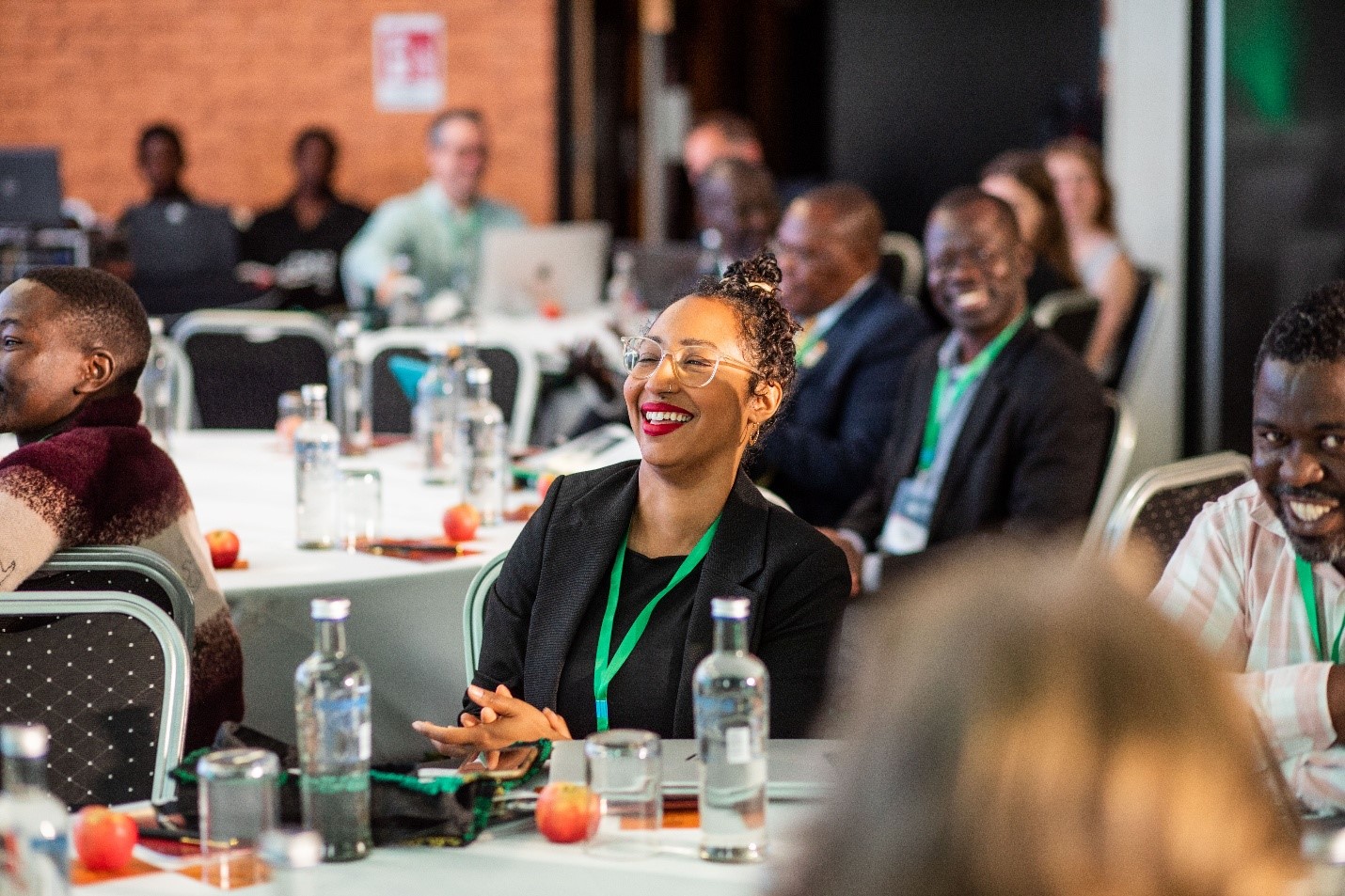
One of the keynote discussions highlighted Uganda’s rich tradition of consuming insects as part of its food culture, reinforcing their significance in nutrition and sustainability. Participants shared insights on local insect consumption practices and their role in livelihoods, drawing from countries like Cameroon, Malawi and many others represented at the event. The forum also featured representatives from key institutions, including the National Council for Science and Technology and The National Agricultural Research Organization (NARO) which contributed perspectives on research, policy development, and commercialization of insects as sustainable food sources, the Ministry for Agriculture, Animal Industry, and Fisheries (MAAIF), emphasizing the Ugandan government’s support for insect farming initiatives.
The Kenya based scientific research institute, the International Centre of Insect Physiology and Ecology (ICIPE) played a key role in the discourse and exhibited several innovations arising from research and their work in insects. Experts explored how insects can revolutionize animal feed production, providing an affordable, high-protein alternative to conventional sources.
With global attention shifting toward alternative and sustainable food sources, experts stressed the need for policy standardization and enhanced investment in insect-based food systems across Africa. During the event, MAAIF announced a $325 million investment through a six-year Smart Agriculture Transformation Project, aimed at expanding sustainable farming practices, reducing environmental impact, and increasing food security through alternative protein sources.
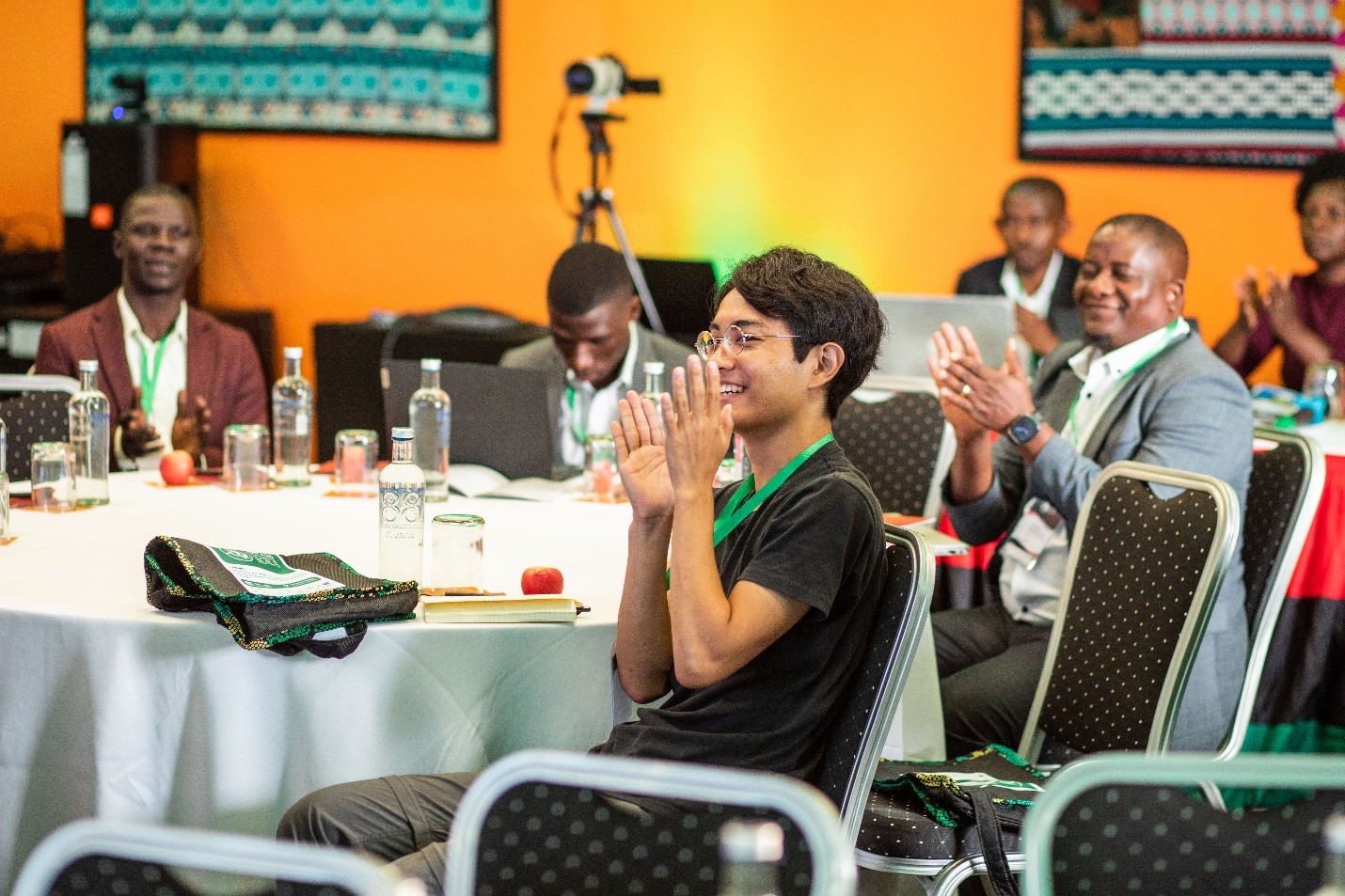
The symposium reaffirmed Africa’s position at the forefront of insect farming research, with discussions centered on scaling production, improving regulation, and leveraging indigenous knowledge for food security solutions. Moving forward, participants emphasized the importance of quality control, standardization, and policy frameworks to ensure safety, scale production, and boost market competitiveness. With Uganda leading discussions on alternative protein sources, the symposium laid the foundation for future innovations in agriculture.
Veterinary & Biosecurity
Makerere Receives Scientific Equipment worth over UGX 1.4 Billion
Published
3 weeks agoon
June 10, 2025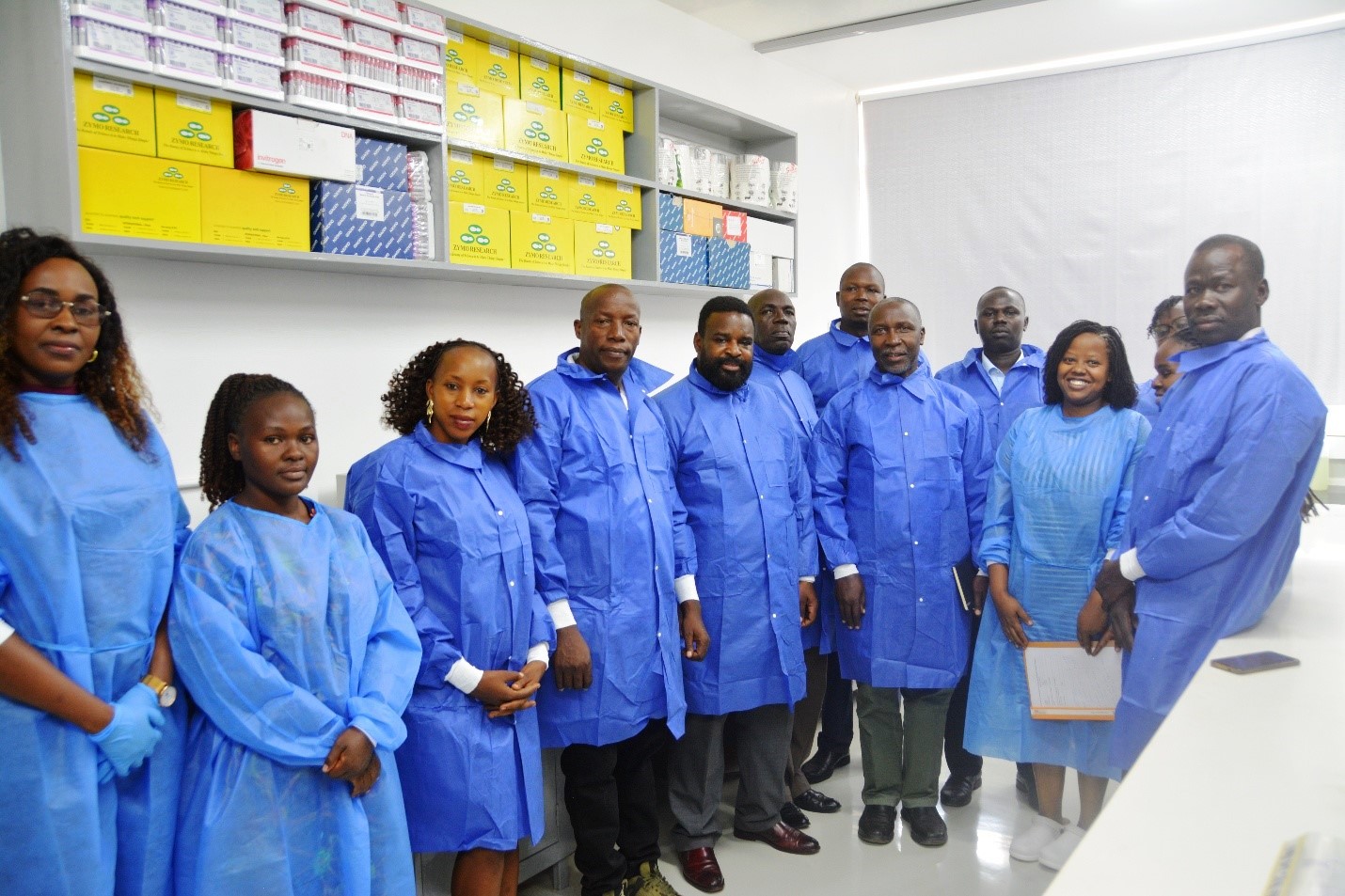
Makerere University has secured a valuable donation of scientific laboratory equipment worth USD 400,000 (Shs. 1.4 billion) through the Seeding Labs’ Instrumental Access Program. This equipment will significantly enhance teaching, research, and diagnostic services at the College of Veterinary Medicine, Animal Resources and Biosecurity (CoVAB).
Following the announcement of a successful application in May 2024, Makerere joins a global network of 137 institutions across 39 countries, gaining access to advanced tools that will elevate STEM education and innovation. This development strengthens the university’s commitment to scientific excellence and fosters collaboration in veterinary medicine and related fields.
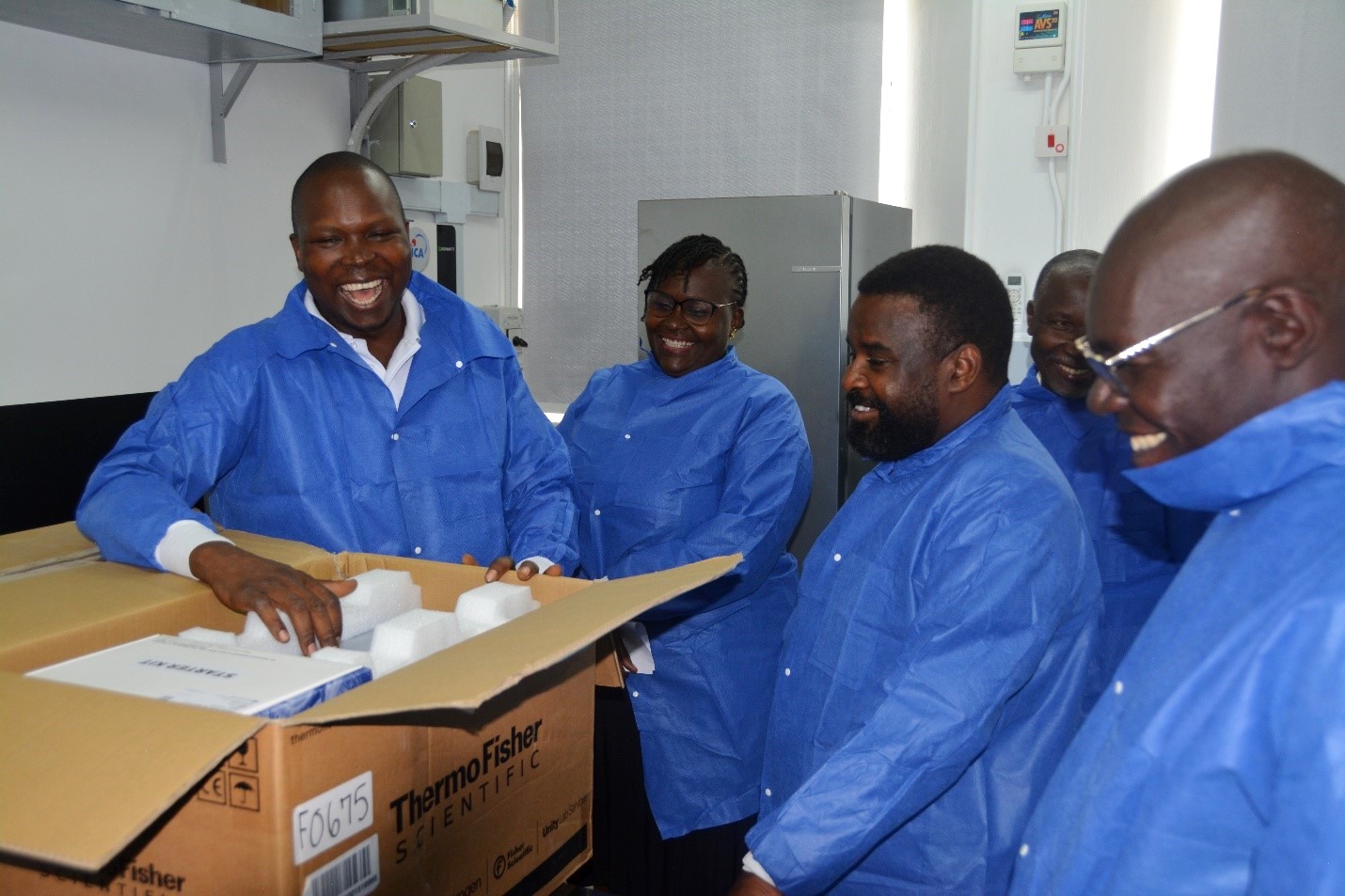
The consignment was received at the College of Veterinary Medicine, Animal Resources and Biosecurity and witnessed by Prof. Edward Wamala, who represented the Vice Chancellor, Prof. Barnabas Nawangwe. In his remarks, Prof. Wamala described the newly acquired scientific equipment as a significant milestone in Makerere University‘s pursuit of academic excellence, innovation, and impactful research. He emphasized its transformative role in strengthening research infrastructure, advancing ongoing scientific inquiry, and empowering both students and faculty to engage in high-impact studies.
Expressing appreciation to Seeding Labs’ Instrumental Access Program for their partnership, he underscored that this contribution was more than a donation, rather an investment in the future of Uganda and Africa at large. He highlighted that the support reflects confidence in Makerere’s students and scientists, recognizing their responsibility to address pressing global challenges in animal health, biosecurity, and public health.
Prof. Wamala further noted that the College of Veterinary Medicine, Animal Resources, and Biosecurity plays a vital role in addressing issues at the intersection of human, animal, and environmental health which is the core of the One Health approach that is emphasized today. With the newly acquired equipment, the college’s capacity will be greatly enhanced, improving diagnostic capabilities, supporting the livestock industry, and contributing to disease surveillance efforts at both local and national levels, he noted.
The Deputy Principal CoVAB, Assoc. Prof. James Okwee-Acai said the equipment received is a significant milestone in the college in its efforts to strengthen science and research capacity. He commended the management of Makerere University for the contribution and support that enabled the shipment and clearance of the consignment. While commenting about the equipment contained in the donation, Prof. Acai said many of items were state-of-the-art and would definitely boost the work of teaching and learning at the college across the two schools.
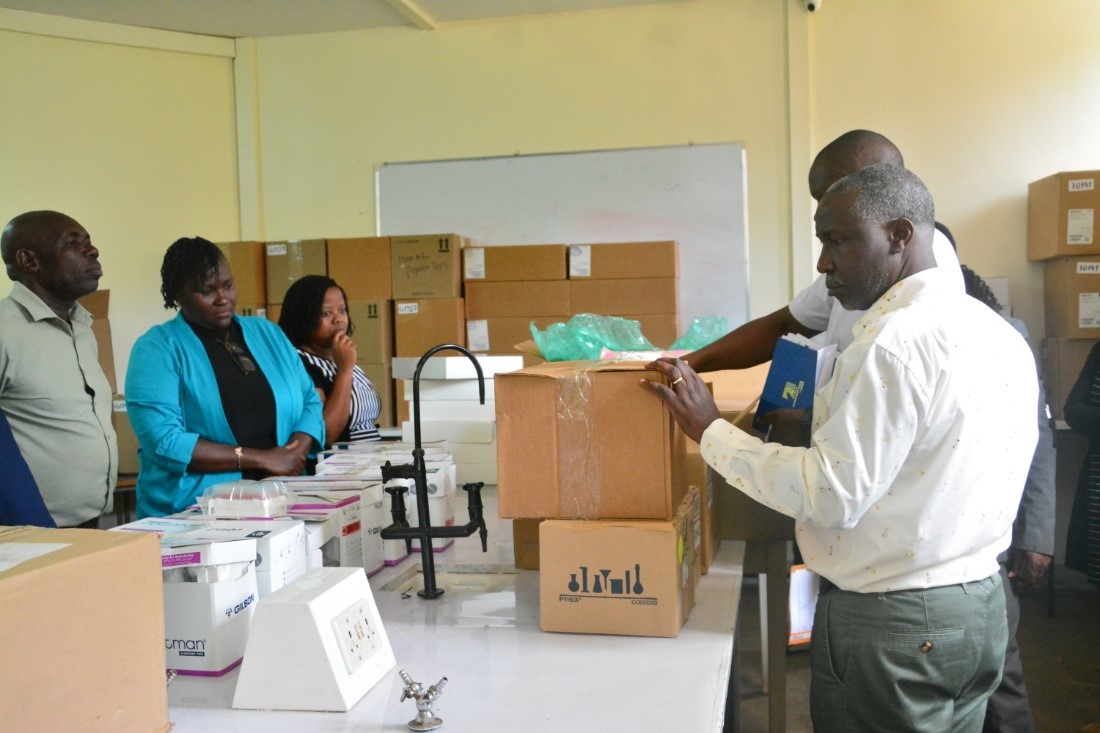
The equipment is expected to greatly enhance the University’s ability to conduct cutting-edge research and provide high quality education in the veterinary sciences. This donation showcases the growing partnerships and collaborations that Makerere University is building to drive innovation and academic excellence. With this valuable addition to its research infrastructure, Makerere University is poised to make even greater strides in advancing scientific knowledge and addressing critical challenges in the veterinary field and looks forward to the transformative impact it will have from training students on the latest analytical techniques to enabling faculty led studies that advance veterinary medicine.
The donors, the Instrumental Access is the flagship program of Seeding Labs, which is a US-based NGO with a mission to increase access to resources for science in developing countries. CoVAB’s participation in Instrumental Access makes Makerere University a member of the community of 137 Instrumental Access awardees in 39 countries worldwide.
The Department of Veterinary Pharmacy, Clinical and Comparative Medicine, Makerere University was chosen for the Instrumental Access award after a rigorous and competitive selection process that receives and evaluates applications from institutions around the world. To be considered, applicants outlined the ways that an infusion of scientific equipment would remove barriers to STEM education and research at their institution, paving the way for new avenues of scientific inquiry and expanding hands-on opportunities for students.
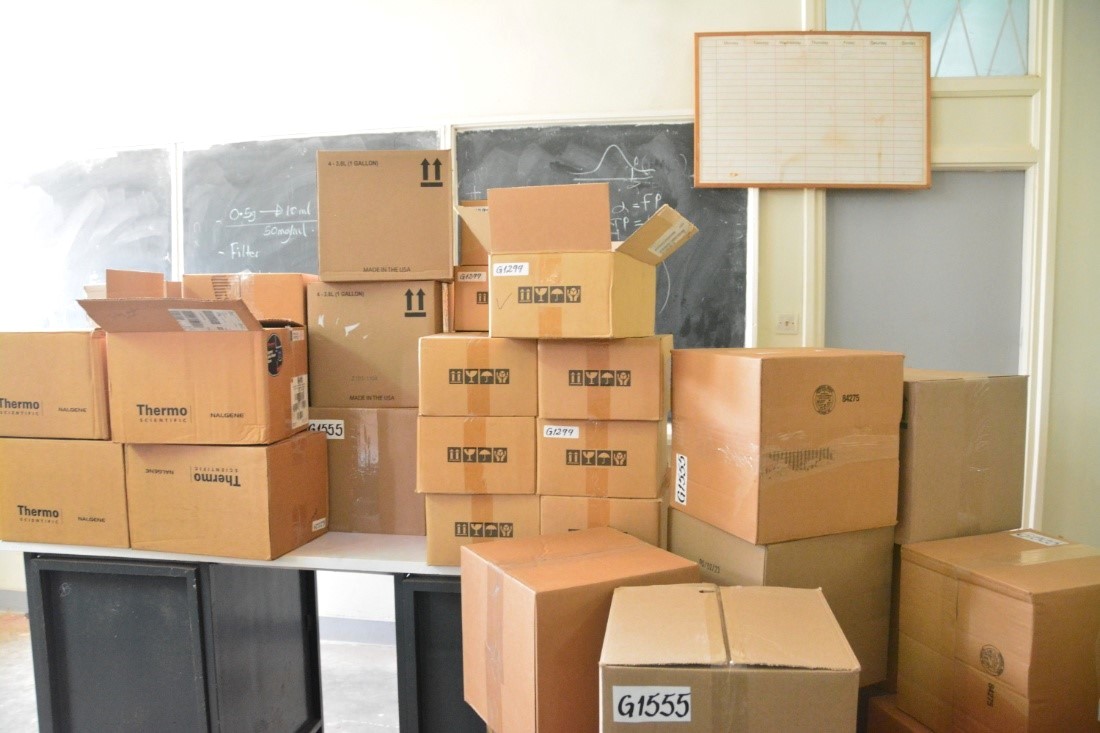
The equipment will provide a foundation for other critical resources that allow scientists to generate new knowledge, leverage sustainable funding, and better prepare university students for the scientific workforce and innovation economy.
More photos from the unveiling
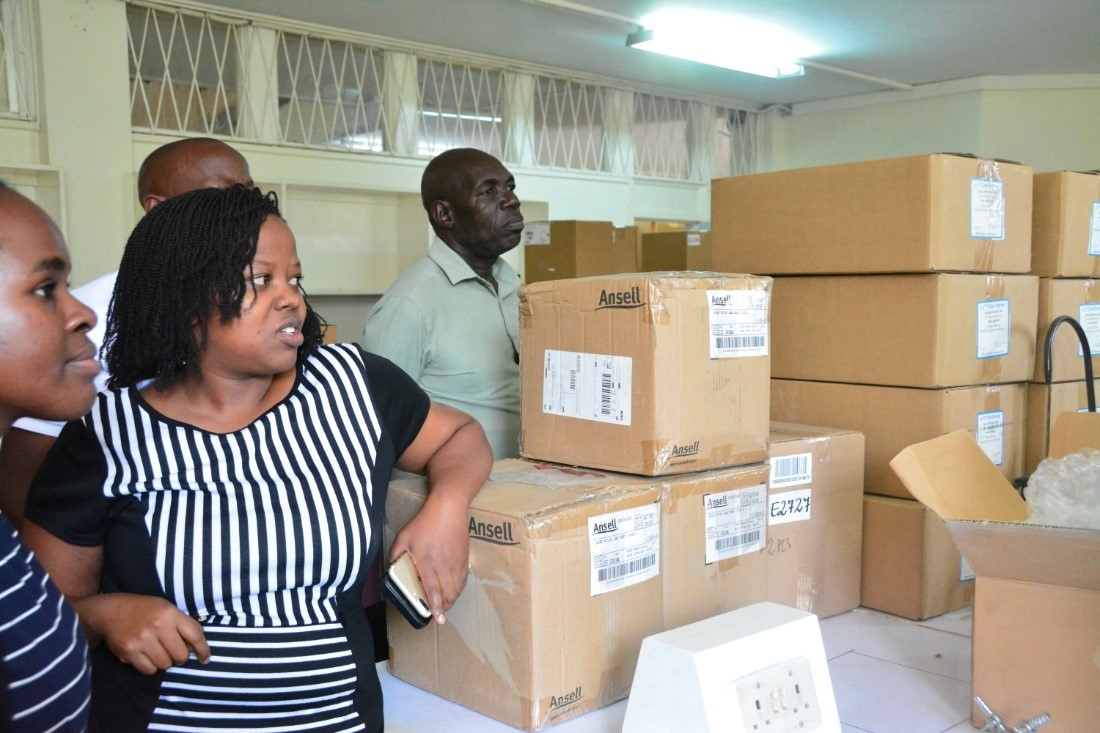
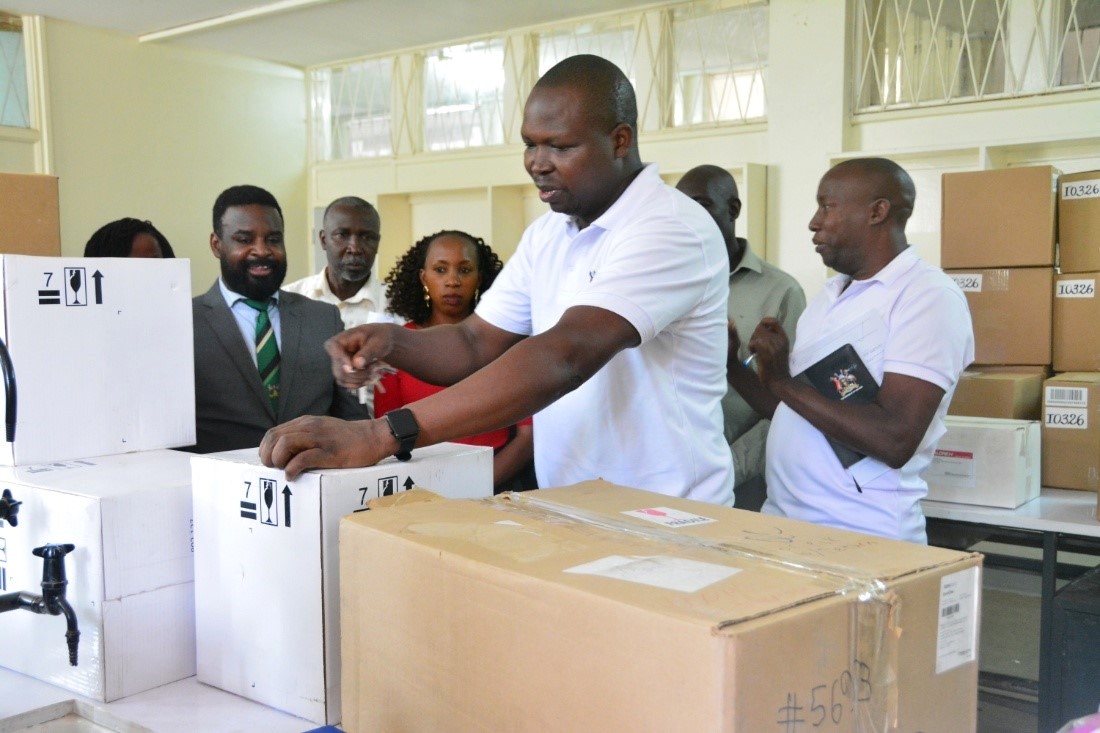
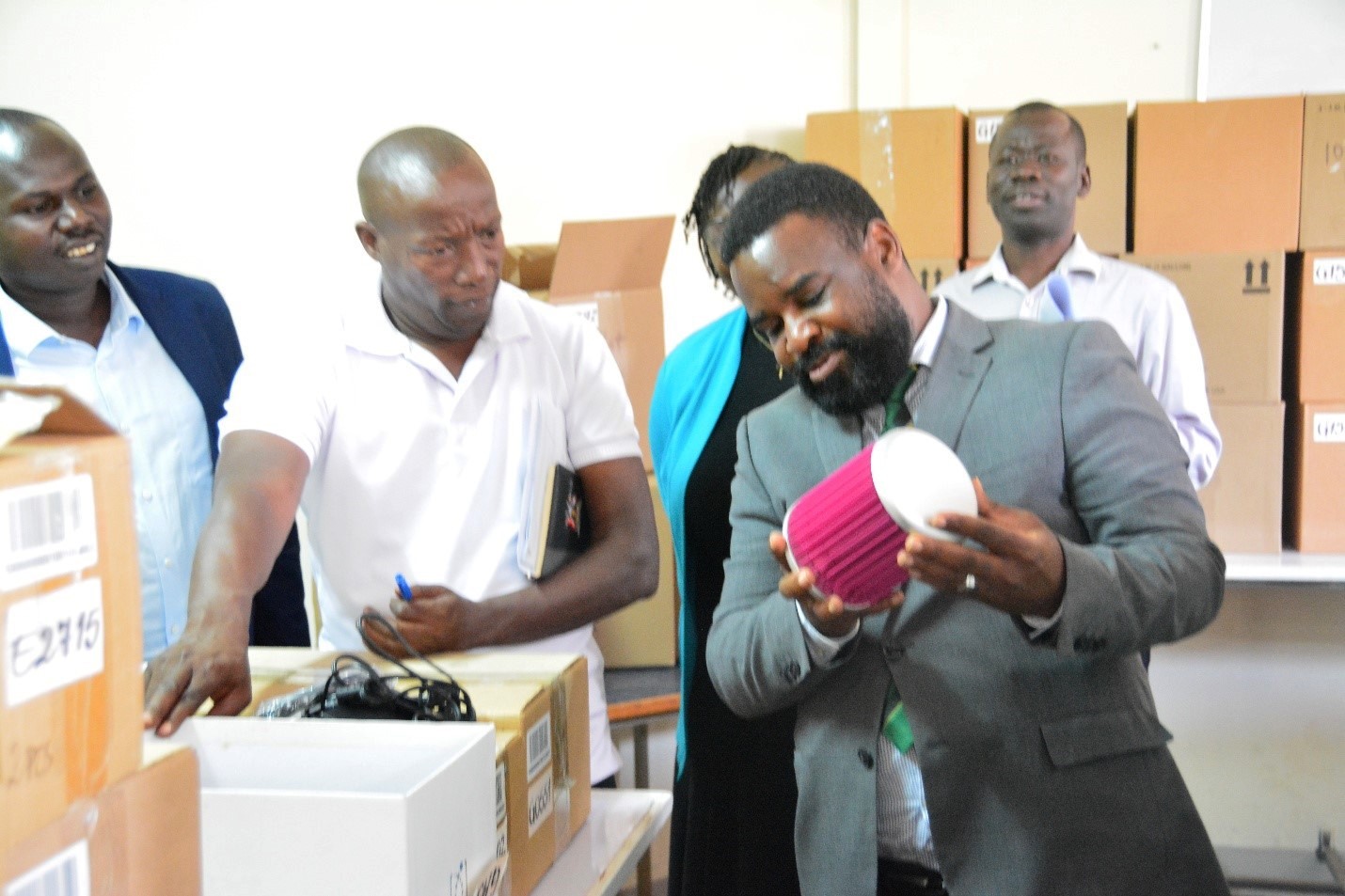
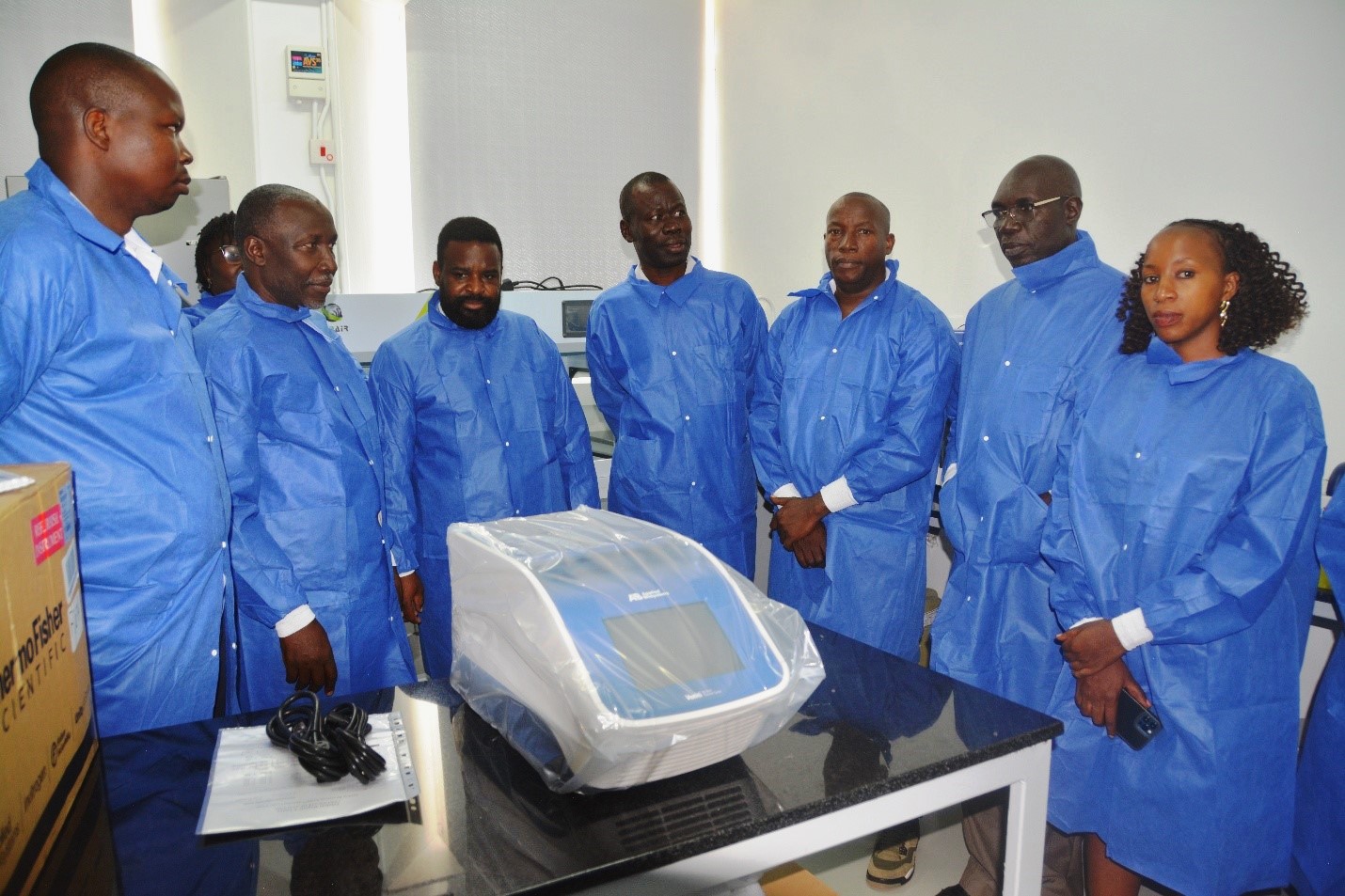
Trending
-

 General6 days ago
General6 days agoMature Age Scheme Exam Results for 2025/2026
-

 General1 week ago
General1 week agoFreshers’ Joining Instructions 2025/2026
-

 General2 days ago
General2 days agoUndergraduate Admission List Self Sponsorship Scheme 2025/2026
-

 General2 weeks ago
General2 weeks agoMastercard Foundation Board pays its inaugural visit to Makerere University
-

 General1 week ago
General1 week agoUVCF Makes Case for HEAC Programme
